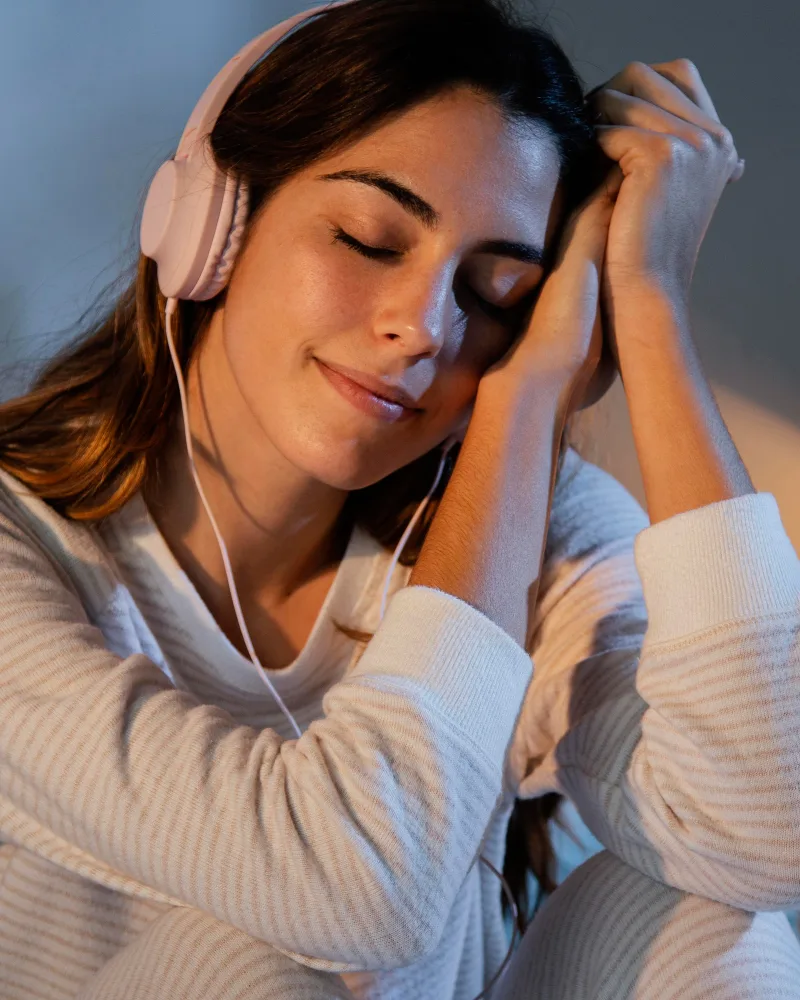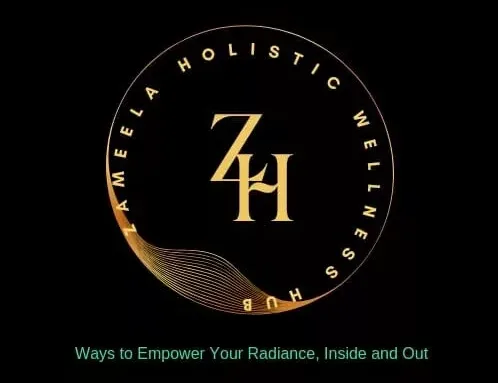Alternative Therapies for Depression: A Holistic Exploration
“Explore innovative and effective alternative therapies for depression beyond traditional medication. Discover holistic approaches for mental well-being and find relief.”
In the pursuit of alternatives to traditional medical approaches, individuals increasingly delve into innovative and alternative therapies for depression. This comprehensive guide introduces progressive strategies, combining lifestyle adjustments, organic supplements, mind-body techniques, and psycho-social interventions.
Introduction
As society’s interest in holistic well-being grows, the allure of alternative therapies for depression intensifies. This article navigates through various approaches driven by a desire for minimal side effects, a preference for natural methods, and the quest for comprehensive wellness.
In today’s world, many seek holistic ways to enhance well-being, particularly in managing depression. This article serves as a guide, offering diverse methods to uplift your mood. We explore options with minimal side effects, embracing natural approaches for overall wellness.
Exploring Holistic Solutions: Alternative Therapies for Depression
Beyond standard treatments, discover the power of connecting mind and body, utilizing herbs, understanding the impact of diet on mood, and exploring art and music as therapeutic tools. Ancient practices like acupuncture and Traditional Chinese Medicine also take center stage. This journey focuses on alternative therapies for depression, aiming to boost mental health through unique, natural, and integrated approaches, supporting you on your path to emotional well-being.
Alternative Therapies for Depression -Lifestyle Modifications
1. Physical Activity: Elevating Well-being with Alternative Therapies for Depression

Engaging in regular physical activity stands as a powerful beacon in the pursuit of alleviating depression symptoms through alternative therapies. This dynamic approach operates on multiple fronts, harnessing the release of endorphins—the body’s natural mood enhancers—and promoting overall physical health enhancement. The positive impact of exercise on mental well-being is increasingly recognized, making it a cornerstone in alternative therapies for depression.
Unlocking Wellness: The Transformative Power of Exercise in Alternative Therapies for Depression
Whether it’s a brisk walk, yoga, or more vigorous workouts, the holistic benefits of physical activity contribute significantly to the journey of finding unique and natural avenues for managing mental health. Embrace the transformative potential of exercise as a fundamental element in the exploration of alternative therapies for depression.
2. Nutritional Psychiatry: Fostering Wellness through Alternative Therapies for Depression
Natural Supplements
4. St. John’s Wort: Nature’s Soothing Touch in Alternative Therapies for Depression
In the realm of alternative therapies for depression, St. John’s Wort emerges as nature’s soothing touch, offering potential benefits, particularly for mild to moderate depression. Despite varying efficacy for different individuals, this herbal remedy has garnered attention for its positive impact on mood.
St. John’s Wort is believed to influence neurotransmitters in the brain, contributing to its mood-regulating effects. While it may not be a one-size-fits-all solution, its historical use and ongoing studies highlight its relevance in alternative approaches to managing depressive symptoms.
5. Omega-3 Fatty Acids: Nourishing the Mind in Alternative Therapies for Depression
Within the realm of alternative therapies for depression, the role of omega-3 fatty acids takes center stage. Abundantly present in fish oil and flaxseed, these essential nutrients show promising potential in ameliorating depression symptoms. Research suggests that omega-3 supplements may positively impact neurotransmitter function and alleviate mood disorders.
Incorporating these fatty acids into one’s diet or through supplements becomes a natural avenue for those exploring holistic approaches to mental well-being. As the understanding of nutrition’s link to mental health deepens, omega-3 fatty acids emerge as a valuable component in the diverse and comprehensive landscape of alternative therapies for depression.
6. SAMe (S-adenosylmethionine): Nature’s Potential Mood Enhancer in Alternative Therapies for Depression
Mind-Body Practices
7. Contemplation: Cultivating Mindful Resilience in Alternative Therapies for Depression
Within the realm of alternative therapies for depression, contemplative practices, particularly mindfulness meditation, emerge as powerful tools for cultivating mindful resilience. Studies indicate that engaging in mindfulness meditation contributes significantly to stress reduction and symptom improvement in individuals grappling with depression.
By fostering a deepened awareness of the present moment, mindfulness empowers individuals to navigate the complexities of their emotional landscape. As an integral aspect of alternative therapies for depression, contemplation encourages the development of mental resilience, providing a holistic approach to managing and mitigating the impact of depressive symptoms. Embracing mindfulness as a therapeutic practice highlights its role in the multifaceted journey toward mental well-being and resilience.
8. Yoga: Fostering Harmony in Motion through Alternative Therapies for Depression

As an influential component of alternative therapies for depression, yoga stands as a holistic practice, seamlessly integrating physical postures, breathing exercises, and meditation. This multifaceted approach promotes not only physical well-being but also contributes significantly to mental health.
The symbiotic relationship between the mind and body within the realm of yoga is recognized for its therapeutic effects on depression symptoms. By harmonizing motion with mindful practices, yoga becomes a dynamic tool in cultivating mental resilience and well-being.
Yoga’s versatility in alternative therapies enhances mental and emotional well-being, emphasizing its valuable role for individuals.
9. Acupuncture: Aligning Energies in Alternative Therapies for Depression
Psycho-Social Interventions
10. Cognitive Behavioral Therapy (CBT): Restructuring Thought Patterns in Alternative Approaches to Depression
Although not strictly categorized as alternative, Cognitive Behavioral Therapy (CBT) plays a crucial role in alternative approaches to depression. This therapeutic technique proves instrumental in recognizing and altering negative thought patterns and behaviors.
CBT operates on the principle that thoughts and feelings are interconnected, influencing behavior. By addressing and restructuring these patterns, individuals can actively reshape their mental landscape, fostering a more positive and adaptive mindset.
As part of the broader spectrum of alternative therapies for depression, CBT offers a pragmatic and evidence-based approach to understanding and transforming the cognitive aspects of mental health, contributing to a holistic and comprehensive approach to managing depressive symptoms.
11. Peer Assistance: Building Bridges in Alternative Support for Depression
Within the framework of alternative support for depression, peer assistance emerges as a vital avenue. Engaging in community services or participating in support groups becomes a powerful means of building bridges and diminishing the isolation often associated with depression.
The essence lies in creating a supportive network where individuals share experiences, fostering empathy and understanding. Peer assistance offers valuable social support, emphasizing the importance of connection in the journey towards mental well-being.
As an integral component of alternative approaches to depression, this communal engagement not only provides a platform for shared understanding but also cultivates a sense of belonging, contributing significantly to the broader landscape of alternative therapies.
12. Therapeutic Arts and Music: Nurturing Creative Healing in Alternative Therapies for Depression

In the realm of alternative therapies for depression, therapeutic arts and music stand as potent tools, offering expressive outlets and creative healing avenues. These innovative approaches provide individuals with unique means to navigate and manage depressive symptoms.
Engaging in creative activities, whether through visual arts or music, allows for the expression of emotions beyond verbal communication. The transformative power of creativity offers a holistic, alternative path to mental well-being, and therapeutic benefits.
As individuals navigate diverse approaches to managing depression, therapeutic arts and music play a crucial role in creative healing within the landscape of alternative therapies.
Digital and Technological Approaches
13. Mobile Applications: On-the-Go Support in Alternative Approaches to Depression
Within the spectrum of alternative approaches to depression, mobile applications emerge as dynamic tools, providing on-the-go support for individuals seeking comprehensive well-being. Dedicated apps for depression management offer a range of resources, including mood tracking, guided meditation, and Cognitive Behavioral Therapy (CBT) exercises.
These accessible and user-friendly platforms empower users to actively engage in their mental health journey. By incorporating technology into the realm of alternative therapies, mobile applications contribute to a flexible and convenient means of accessing valuable support and resources.
As individuals explore diverse avenues for managing depression, these apps serve as contemporary and innovative components within the evolving landscape of alternative approaches to mental health.
14. Illumination Therapy: Harnessing Light for Comprehensive Wellness
In seeking comprehensive wellness, illumination therapy takes center stage as a vital component, particularly for addressing Seasonal Affective Disorder. This therapeutic approach involves deliberate exposure to daylight or specific light wavelengths, recognizing the profound impact light has on mental well-being. Illumination therapy is designed to counter the effects of reduced sunlight during certain seasons, contributing to mood regulation and overall wellness.
As individuals explore diverse strategies for managing depression, illumination therapy offers a unique and targeted solution, harnessing the power of light to positively influence the intricate interplay between environmental factors and mental health. Within the expansive realm of alternative approaches, illumination therapy shines as a beacon of innovative and natural intervention.
Considerations and Conclusion
Exploring alternative therapies necessitates consultations with healthcare professionals to ensure appropriateness. Effectiveness varies, and ongoing research aims to provide a comprehensive understanding of potential benefits and limitations.
In Conclusion
While alternative therapies present promising prospects, they underscore the importance of a personalized and holistic approach to mental health care. Active collaboration between healthcare providers and patients facilitates the identification of optimal strategies to manage depression.
Frequently Asked Questions (FAQ)
Q: Are alternative therapies a substitute for conventional treatments?
A: No, their role should primarily be complementary, especially in moderate to severe cases.
Q: Can these therapies interact with conventional medications?
A: Yes, consultation with healthcare professionals is crucial to avoid potential interactions.
Source Links:
Exercise is an all-natural treatment to fight depression – Harvard Health
Nutritional psychiatry: Your brain on food – Harvard Health



Fantastic site A lot of helpful info here Im sending it to some buddies ans additionally sharing in delicious And naturally thanks on your sweat
Wow, fantastic weblog layout! How lengthy have you ever been running a
blog for? you made blogging look easy. The total glance of your web site is magnificent,
as smartly as the content! You can see similar here sklep online